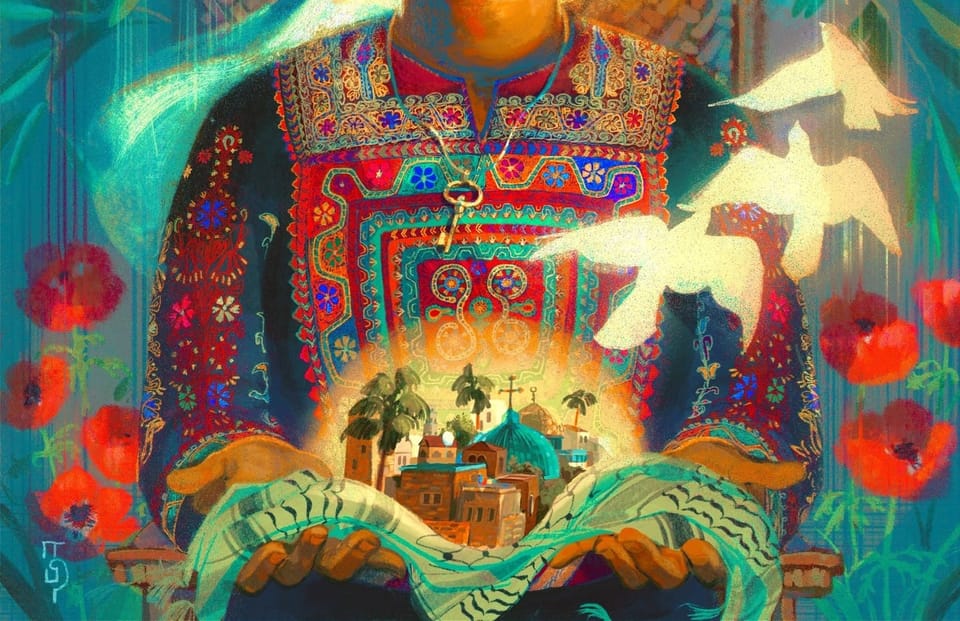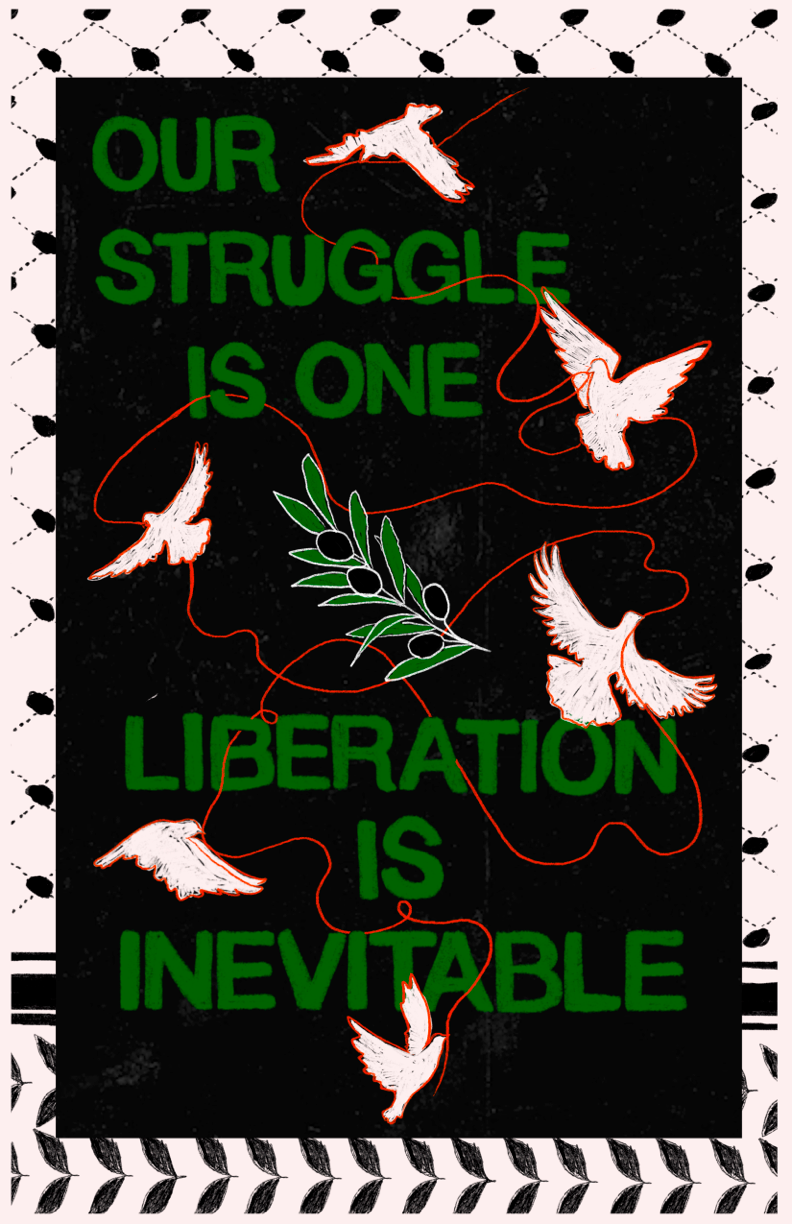Befriending the Qur'an
What I send to those who ask me how they can start building their own relationship with revelation. How do you read it? Which translations? Where do you start?
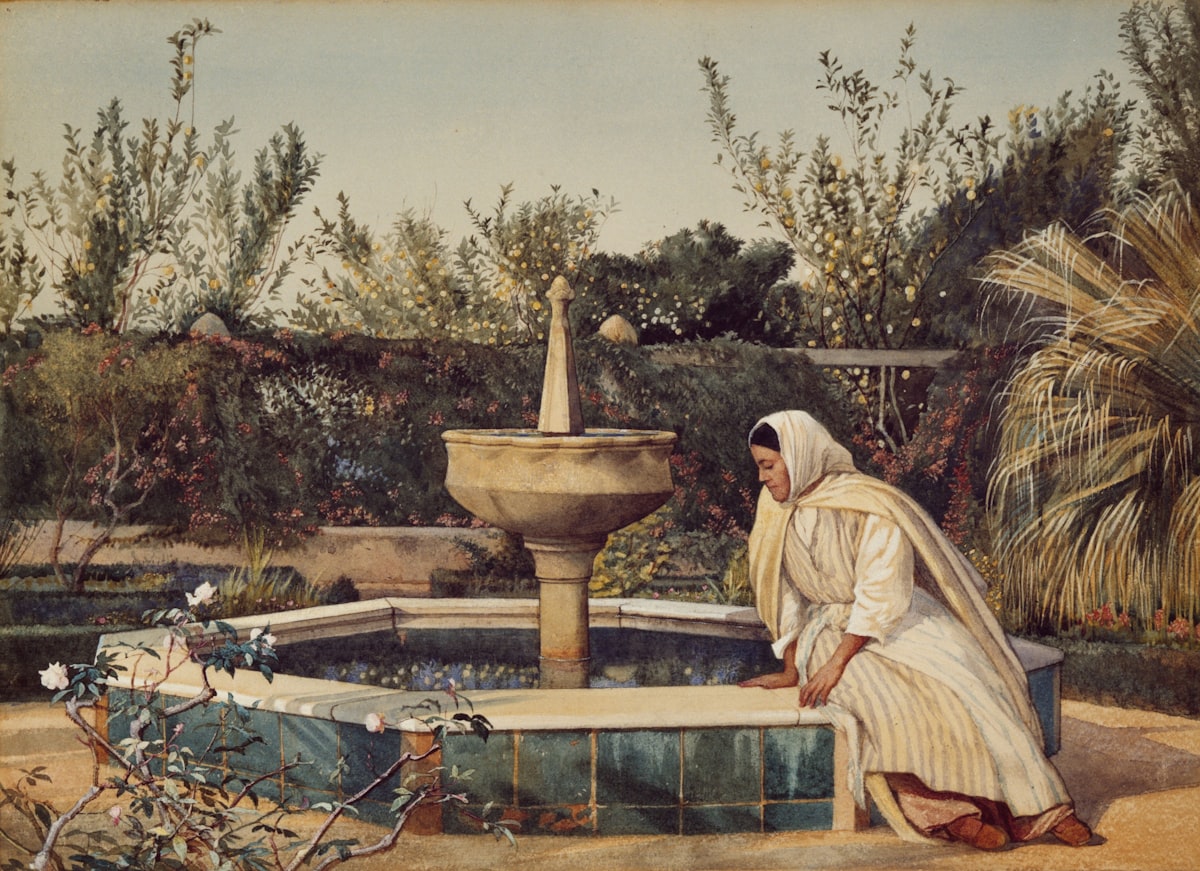
Ingrid Mattson writes in The Study Quran:
Some born into Muslim families and communities might have a more difficult time opening their hearts fully to the Quranic message than new readers, because they have been taught to understand verses in a particular narrow, sectarian way. [...] Readers of the Quran must shed the notion that a literalist reading of the Quran is somehow more authentic or pious than an informed interpretation. Ironically, the minority of Muslims who apply a narrow “fundamentalist” hermeneutic to the Quran find as their allies a small group of anti-Muslim bigots who similarly take verses out of context to prove their hateful assertions.
Q: How do I read the Quran? Which translations should I use?
- I usually use quran.com because it's easy to type out quran.com/sura/verse and get to where you want to look up. For a single verse, eg. 41:53, you would type quran.com/41/53. For more, eg. 51:20-21, you would type quran.com/51/20-21. Easy!
- As for which translator, I always read with at least two translations at once. Since no translation is perfect, having a few with me really helps. In the settings of Quran.com, you can turn on as many translations as you like ⚙️ There are several English ones and more in over 60 languages. Most translators use footnotes and those are all clickable in quran.com.
- Two modern translations I favour on Quran.com are Abdel Haleem and Mustafa Khattab — in the 2020s I noticed both these translations came up the most with non-Muslims and new Muslims on TikTok, Instagram and YouTube, especially in the genocidally-induced mass moral awakening of 2023. If you're looking for one by a woman on there, Saheeh International is translated by three women, but you would be wrong to expect a less conservative translation because of it.
- And of course there are even more translations outside of quran.com! I often return to Pakistani poet Ahmed Ali's translation of the Quran from the late 1980s.
- All translations are human and imperfect, but since the Qur'an is meant for all time and communities, you should still be able to find benefit in it even without multiple translations at hand. However, any time you are only offered one translation of the verse and it doesn't sit well with you, it's good to make a note of the surah and verse number so you can compare it to another translation later.
Q: Where in the Quran do I start?
After the first surah, anywhere you like! The Qur'an can be read cover to cover, but it can also be read in any part at any time. One suggestion from Kecia Ali and Oliver Leaman in Islam: Key Concepts is this reading sequence:
Any reading should begin with the first surah, al-Fatihah. Rather than proceeding to surah 2, The Cow, one can then turn to the last surahs, either working backwards from 114 to 30, or proceeding in three groups: 81-114, 51-80, 30-50. The surahs which appear closest to the end of the Qur’an represent the chronologically earliest protons of the book and are concerned with major themes of divine power, the day of judgment, eschatology, and human accountability. The middle surahs (10-29), which have a lot of the stories of the prophets in addition to other materials, ought to come next. The story of Joseph (which deals with love), found in its entirety in Sarah 12, is the most coherent single narrative in the Qur’an and an interesting one for comparison to the biblical account. Lastly, surahs 2-9 contain prophetic stories (Mary, Jesus, Moses) as well as significant legislative content covering matters including marriage, divorce, and inheritance. Surahs 8 and 9, which should be read together, discuss military conflicts and are thought by some to have once been a single surah, accounting for the unique lack of the basmalah at the beginning of surah 9.
Q: Do you find the Quran messy and repetitive?
Short answer: I think we are messy and repetitive! We often have to receive a lesson so many times before we hear it, and just because someone reads a bit of guidance doesn't mean they'll ever read all of it, or in this case all 6236 verses of it. This is why it doesn't matter where you start. You can always choose your own adventure with the Quran, never finish it, and still encounter benefit if it was meant to find you here.
Long answer: We can unpack this a bit more. If you only read Mustafa Khattab's The Clear Quran on quran.com you would miss the introduction he prepared in the print version. I've summarised it a bit here, added some of my thoughts, and quoted him again at the end.
- Its verses were transmitted for 23 years. The Qur'an's 6236 verses/signs (same word in Arabic) emerged over 23 years accompanying the earliest Muslim community who lived in two different situations: firstly, as a persecuted minority who had to flee for their own safety (in Makkah/Mecca); then secondly as a formally recognised community with political governance power (in Medina). You may have heard some people classify its 114 surahs (chapters) as either Makki (Meccan) or Madani (Medinan).
- Then its chapters were arranged by length (mostly) from longest to shortest. It's true that context is important and empathising with those alive in the period of revelation can be healing. However, the Beloved has intended the Quran's surahs be organised by length (mostly), not chronologically. So I try not to limit the verses/signs to that single community point of reference, since the Beloved foresees and understands all ages and all humanity.
- Consider how challenging it is to craft coherent literature through that process, let alone compelling and consistent messages. The story we know is that the verses/signs were revealed to a people who took much pride in their mastery of Arabic— literary fairs were common, prized poems were inscribed in gold. What's important to note is that it was common to craft, remember and recite poetic literature often and with ease. Understandably, many people were + continue to be deeply affected by a project of Divine Self-Disclosure through oral revelation in complex and clear Arabic, transmitted through an unlettered man, where chapters were articulated in different chunks over 23 years, rearranged by length, and the text still reads in an interrelated way from chapter to chapter. There was also observable phenomena in the actual content itself, such as numerical patterns (eg. people noticing words for the Garden and the Fire each occur 77 times, the word for forgiveness occurs twice more often than punishment), or scientific truths that were not yet known by people of the 7th century.
- Repetition is a clear stylistic feature of the Quran and in modern life. It emphasises, reassures, it draws focus. Mustafa Khattab in The Clear Quran says that the fact that "these repetitive themes and stories are perfectly consistent, despite having been revealed over the course of two decades to an unlettered prophet, is yet another proof of the divine source of the Quran."
Here's Mustafa Khattab again from The Clear Quran: A Thematic English Translation ⬇️
Of the Quran’s 114 sûrahs, eighty-six are classified as Meccan because they were revealed before the Prophet’s emigration to Medina. These sûrahs focus mainly on restoring the belief in the One True God. The other twenty-eight sûrahs are categorized as Medinian since they were revealed after the Prophet’s emigration from Mecca with an emphasis on the commandments regarding a Muslim’s relationship with their Lord, their fellow humans, and the rest of Allah’s creation. Some Meccan sûrahs may have Medinian verses and vice versa. Sûrahs and passages were revealed over a period of twenty-three years to address issues facing the Muslim community. As instructed by Allah through the angel Gabriel, the Prophet (ﷺ) ordered his scribes to arrange sûrahs mostly according to their lengths, with the longest sûrahs first, not chronologically.
Although the Quran is not arranged chronologically, the sûrahs are perfectly interrelated. Some of the stories or themes that are touched on passingly in one sûrah are explained in detail in the next sûrah (see 12:105 and 13:1-17). In some cases, both the end of a sûrah and the beginning of the next sûrah cover the same subject (see 53:57-62 and 54:1-5). One sûrah might give some stories and the next will continue the narrative by adding more stories (see sûrahs 37 and 38).“ Additionally, two consecutive sûrahs might cover the exact same themes, but in a different order (see sûrahs 55 and 56).
Quranic sûrahs have diverse themes, with main overarching subjects (e.g., verses 2:221-242), interjected by secondary subjects (e.g., verses 2:238-239). In essence, all themes have a common denominator: one’s relationship with their Creator and the rest of His creation. Assuming that not everyone will read the Quran in its entirety, readers will run into this common denominator at any given sûrah.
Q: What's your favourite verse(s) in the Qur'an?
I don't think I have an answer to this question, but I was inspired by Qur'an verses 41:53 and 51:20-21 so much that I wrote a whole queer Muslim spiritual wellbeing workbook (The Signs In Ourselves) based on them in Ramadhan of 2020. So yes, you really can get a lot out of a verse or two!
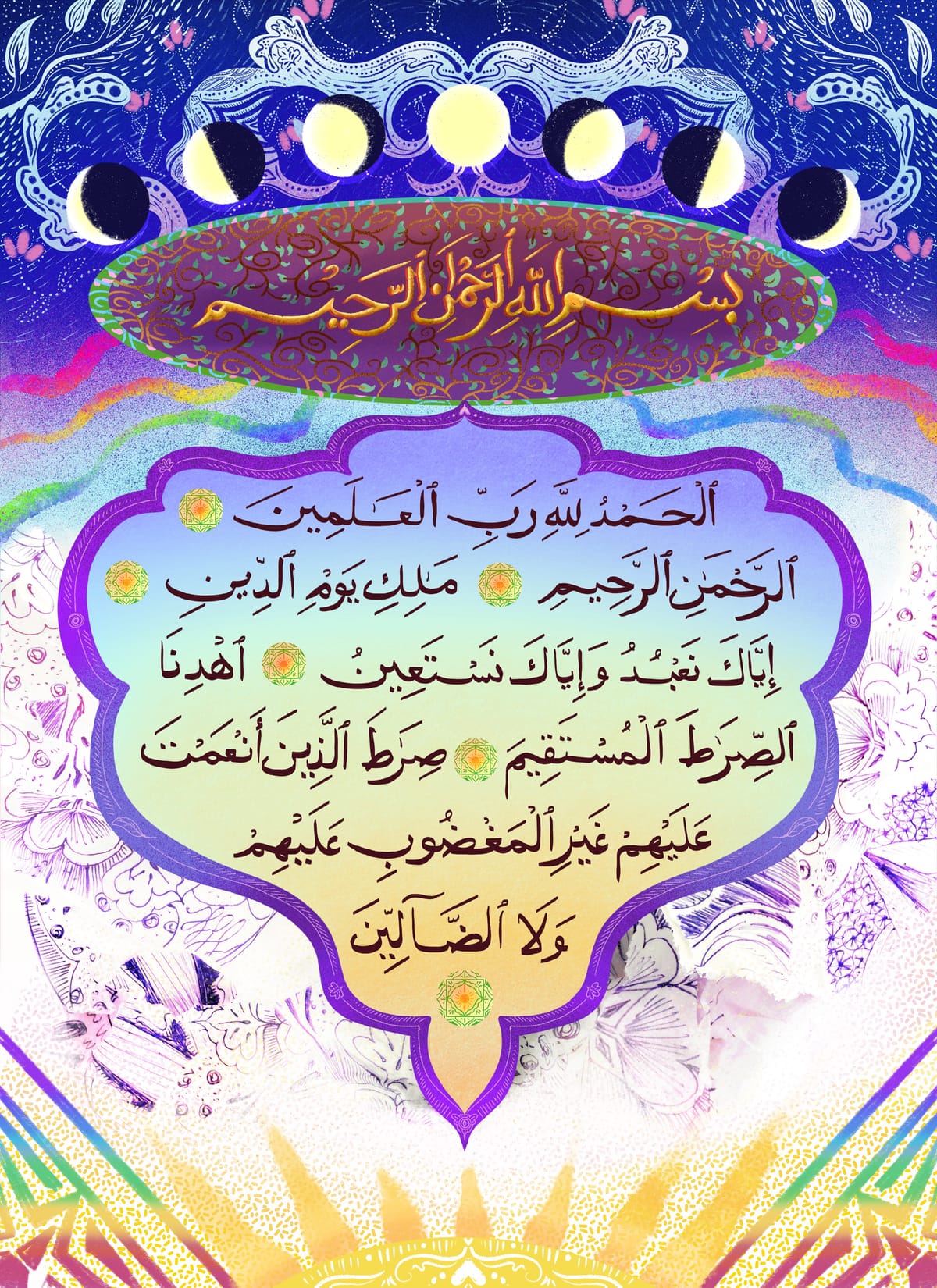
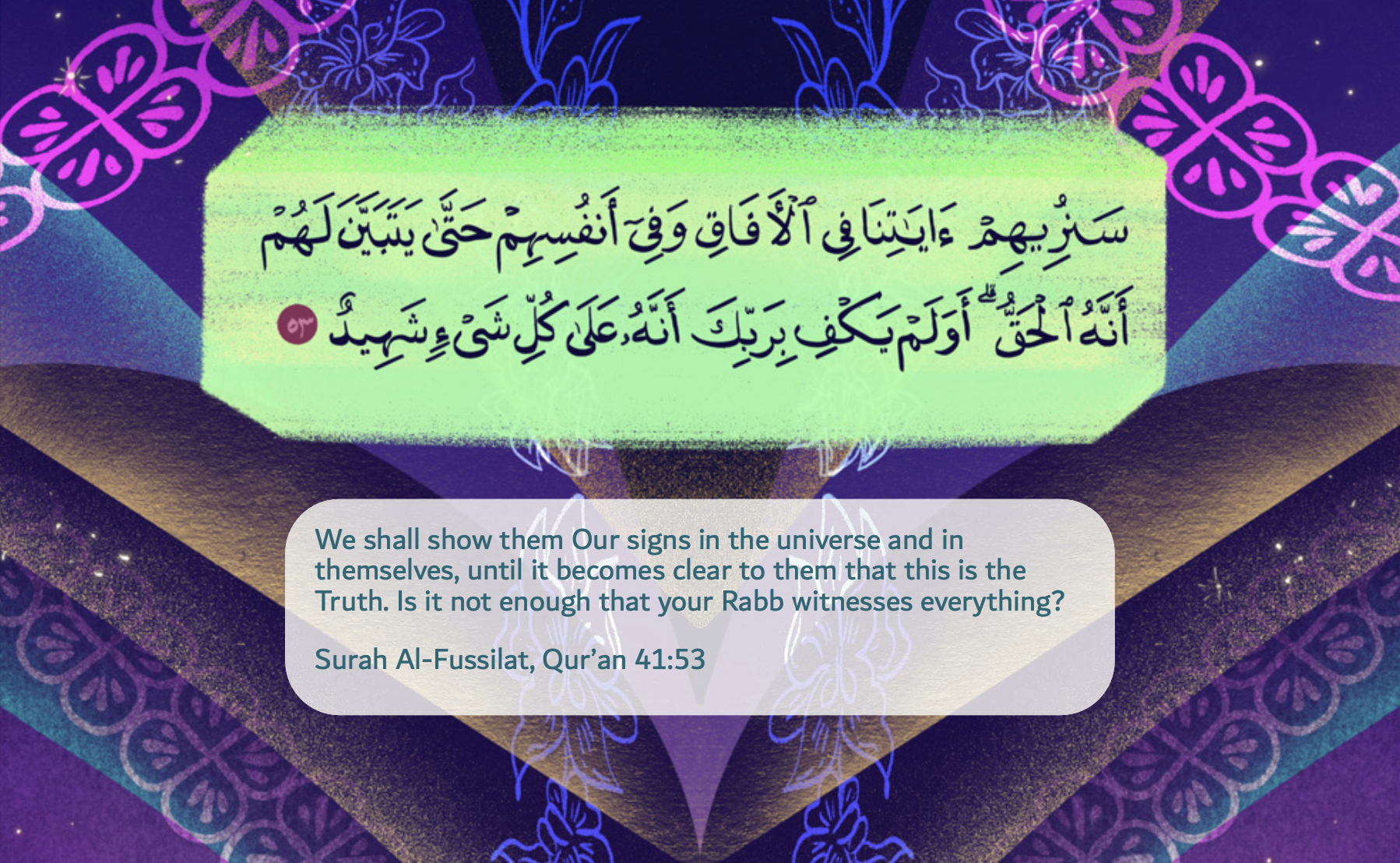
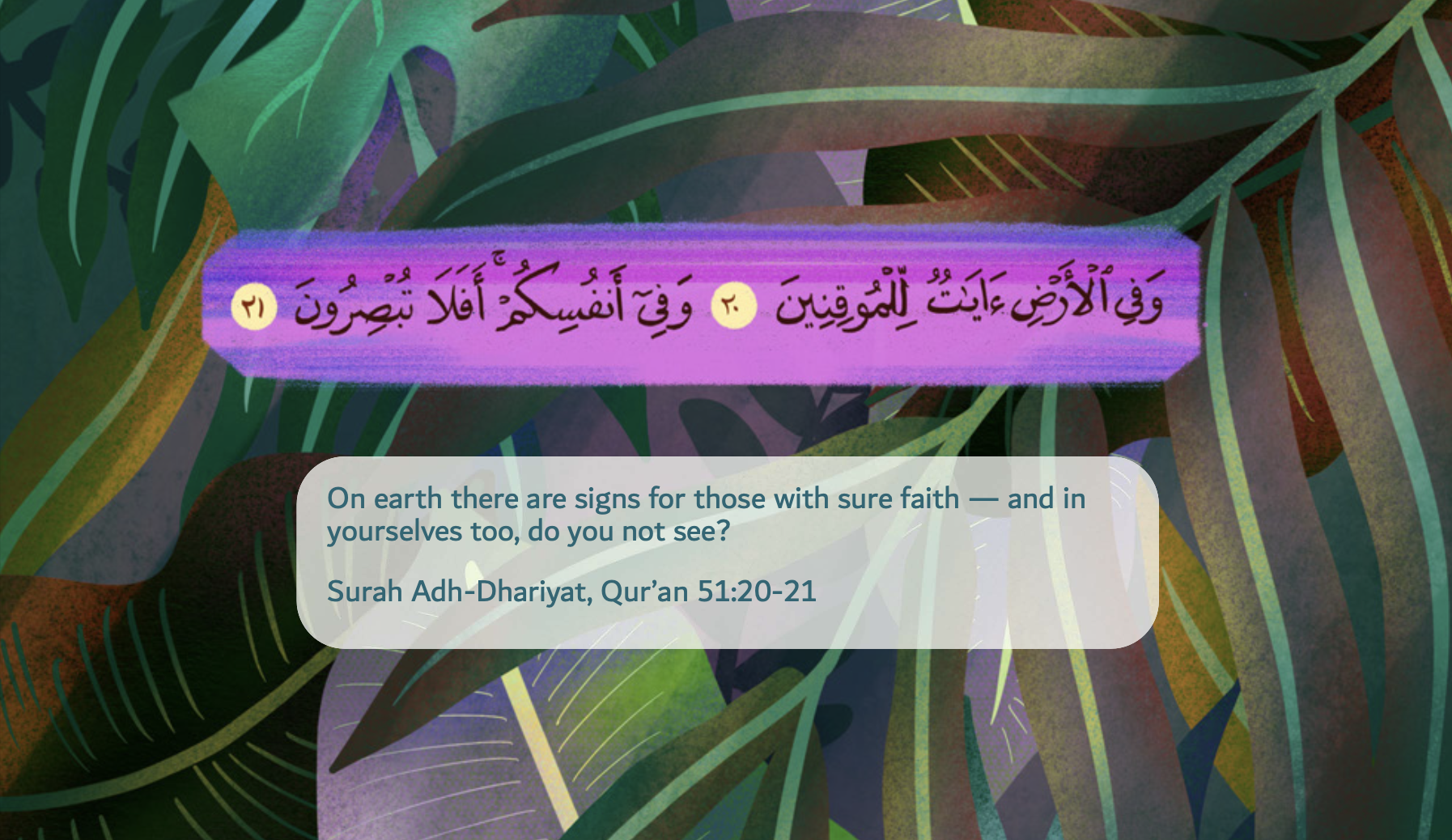
Q: Any advice before I jump in?
When you do decide to read, it may help to be intentional and respectful about showing up to hang out— make some tea first maybe, take a shower if you can, dress in something comfortable that helps you feel like yourself, and be present from distractions so you can hear what's being said. Play a recitation of the surah or verses you are reading as you go along. One of my favourite recitations to play at the end of a long day is this one of surah 19, Maryam.
Here are some useful tools in my spiritual toolkit:
Tadabbur: Remember that the Quran literally wants us to deeply consider many meanings of its verses (23:68, 38:29, 4:82). The practice it calls us to do is 'tadabbur', and tadabbur of a thing/affair is to be deeply curious about it. So, acquire two pieces of information and think on its consequences to acquire a third piece. The Qur'an draws attention to the inherent value of properly using reason in almost 60 different occasions (according to Basit Koshul). Be curious about discovering what benefit we were meant to learn from a verse.
The four-arched portal of Rahma is an offering from Dr Ghazala Anwar for when you are nervous or scared to approach the Quran. Something to keep in mind as the Quran speaks about itself, its Revealer, its purpose, its devotees, and its detractors— is Rahma, which grounds the basic principles of Quranic engagement.

The tawhidic paradigm for human rights for 'the point' of believing in an eternal power. Tawhid or Tawheed is a fundamental Islamic principle of unification and indivisible Oneness, often translated to as 'monotheism.' The tawhidic paradigm asks us to consider how our recognition of Allah's singularness manifests in the way we live life. I learned this paradigm from amina wadud, who describes it as the reason they became Muslim.

Silence. People have asked me over the years what the Qur'an explicitly says about X, Y or Z. We know there was much going on as revelation unfolded that was worth commenting on. Some meanings of revelation may only be understood by humanity in certain eras, including ours. With that consideration, sometimes I say it is just as interesting to see what the Qur'an chose not to comment on explicitly, in favour of a timeless silence. Silence isn't always erasure; what seems like an omission can also be a powerful act of awareness, compassion, and solidarity.
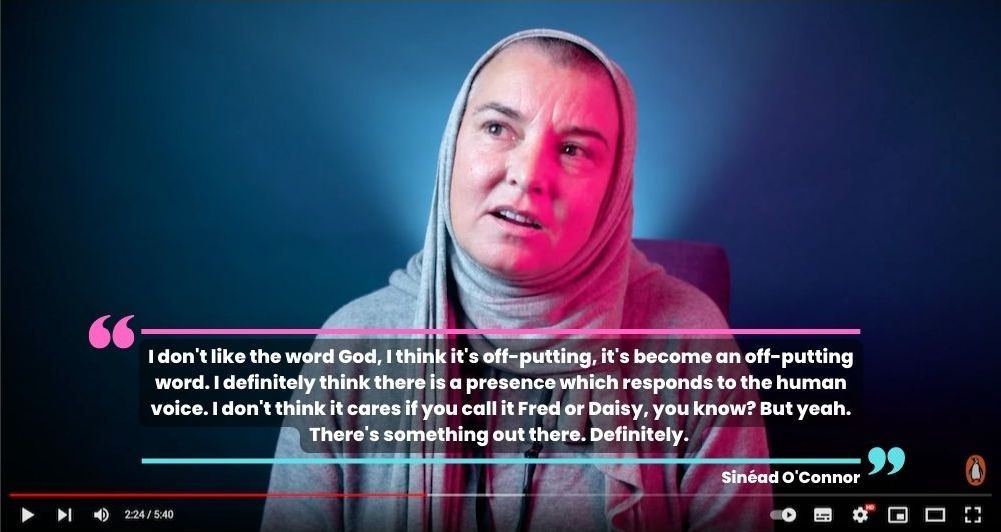
Q: I'm back and I think the Quran and I are friends??? What now?
Besides taking joy in the fact that centuries of orientalism, religious authoritarianism, and an unspeakable amount of money poured into funding Islamophobia has failed to gatekeep the Quran from one more person? Besides embodying the struggle for justice and revolution? Besides making your own list of Basics to refer back to as we build networks of collective care?
Ok but seriously, once you're less nervous about approaching it and more curious about what you encounter while reading (especially differences in translation), it might be time to bookmark a corpus and use it to analyse Arabic terms. Looking up Quranic Arabic words is very rewarding because Arabic (and generally Semitic languages as a whole) have roots and are made alchemically— kind of like an enzyme-substrate reaction if you learned that in school. For example, the root or 'enzyme' of SLM produces the words 'Islam', 'salam', 'Muslim', 'salim', among others.
- Look up a Quranic Arabic word in the corpus when stuck on a translation that doesn't sit right with you,
- See where and how else the term appears in the Qur'an,
- Triangulate the kindest meaning (the one with the most rahma).
Maybe I'll write more about the corpus among us later in an another post so it isn't as intimidating. As ever, the Beloved knows best and is the best of planners.
Related:

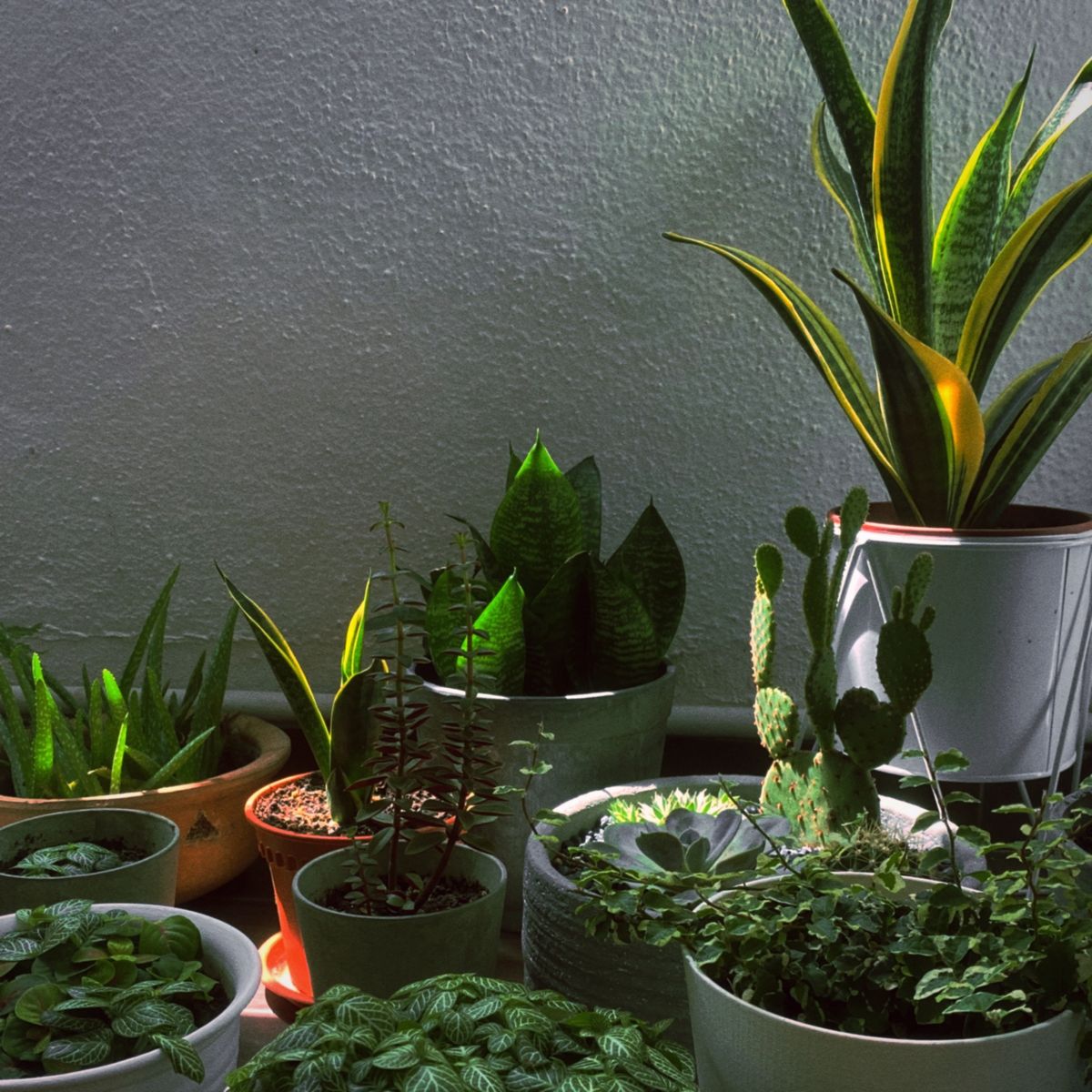
References channel
Some verses I bookmarked: are.na/liy/every-verse-a-sign

